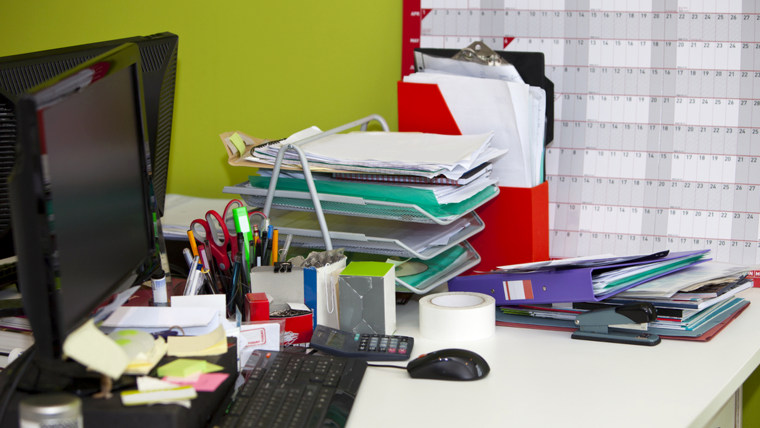Your laundry is overflowing, your dirty dishes are stacking up and your feet are starting to stick to the kitchen floor again. You want to get organized yet just can’t seem to get it together.
Whether you consider yourself a slob, neat freak or somewhere in between, we all have our own idea of what “clean” looks like. In fact, people have different guidelines about what they consider tidy and when they can break them, according to a new study in the Journal of Consumer Research.
For example, you may feel justified in not putting your dishes away during the week while someone else may feel anxious if they are not always neatly lined up on the appropriate shelf.
“We cannot say that it is better to be tidy rather than untidy. What is important is that objects are in the place that the people have defined,” Delphine Dion, co-author of the study and associate professor at Sorbonne Business School in Paris, told TODAY.
So no matter what you consider to be tidy, getting organized (however YOU define it) can help you feel less stressed and more in control. Here are six common roadblocks that may be stopping you from organizing and how you can overcome them.
1. Problem: You don’t know how to organize.
“Organizing is a skill like learning how to play an instrument or a sport. If no one has taught you, how are you expected to know what to do?” asks Regina Leeds, author of New York Times bestseller One Year to an Organized Life.
As with any skill, mastering organization requires a good teacher and lots of practice. She suggests learning from a professional organizer or family and friends (as long as they’re good organizers and teachers).
From organizing a room to completing a project for work, Leeds follows three steps she calls “The Magic Formula”: eliminate, categorize and organize. Get rid of what you don’t need, put the items you are keeping into related categories and then organize the groups so they are functional, pleasant to look at and easy to maintain.
2. Problem: You feel overwhelmed by the mess.
You feel like the project at hand is a disaster and don’t even know where to start.
How can you get motivated? Cut the task into sub-goals, suggests Dr. Martin Ford, an educational psychologist in the College of Education and Human Development at George Mason University.
“Just as authors don’t write a whole book in a few hours or days, there is no need to feel like an organizing task has to be completed all in one sitting or over a short period of time,” he told TODAY in an e-mail.
Make a little bit of progress on a regular basis and getting organized will seem more manageable. Give yourself specific instructions on what, where and when to work on the project (such as spend 15 minutes organizing your closet every night after dinner).
3. Problem: You tidy up and the clutter returns two weeks later.
If you’re falling into this trap, it’s likely you are tidying up and not organizing.
“It’s the difference between a real shower and a sponge bath,” Leeds told TODAY.
Tidying up means clearing the surfaces and stuffing junk in drawers or closets. When you organize, “there’s a place for everything and everything goes back into its place,” she says.
4. Problem: You are not mentally alert.
You are having a hard time remembering your to-do’s or are feeling too tired to make decisions.
Career coach Dr. Marty Nemko says that poor memory can be a key contributing factor to disorganization. He suggests writing down your to-do’s on a list and checking it frequently.
“Say aloud the things you need to remember. That will help lock them in your brain,” he writes in Psychology Today.
Leeds says developing healthy daily habits — getting adequate sleep, exercising, eating nutritional food and drinking enough fluids —will also help you be more mindful and productive.
5. Problem: You are distracted.
Whether you are driving your kids to and from school, inundated with work e-mails or constantly running errands, there always seems to be something distracting you from getting organized.
Set aside time when you’re more likely to be able to focus (when the kids aren’t around or you’re not on a work deadline). Turn off your TV, phone ringer and any other distractions, Nemko advises. Wear headphones and listen to your favorite pump-up music to help you get the job done.
6. Problem: You are a hoarder.
You are attached to your items, can’t decide what to toss and worry you may need them once you give them away.
“You must realize your life will be better if you freed yourself from the shackles of stuff,” Dr. Nemko writes in Psychology Today.
If you’re having a difficult time believing this, Nemko recommends seeing a cognitive-behavioral therapist who specializes in hoarding.
